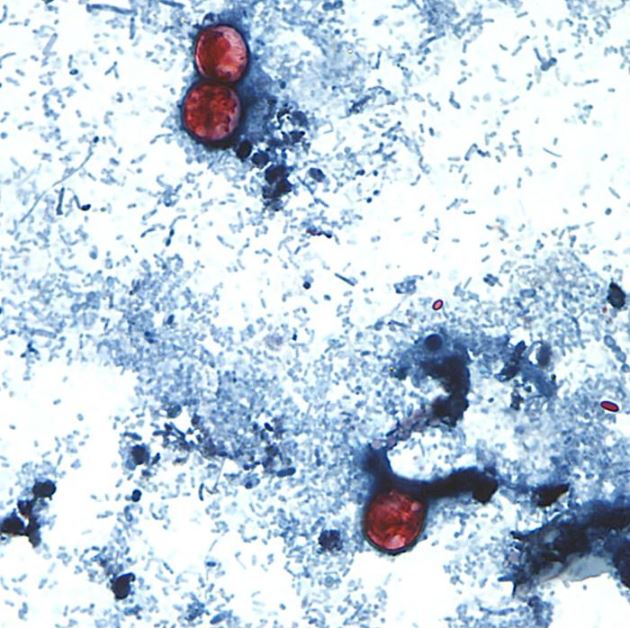
Parasite Outbreak Tied to Del Monte Vegetables Sickens More Than 200 People

An outbreak of parasitic infections tied to Del Monte vegetable trays has sickened more than 200 people in four U.S. states, according to the Centers for Disease Control and Prevention.
Victims of the outbreak were sickened with Cyclospora cayetanensis, a microscopic parasite that causes an intestinal illness known as cyclosporiasis. The outbreak was first announced on June 15; and as of Thursday (July 5), there were 212 Cyclospora illnesses tied to the outbreak, which occurred in Minnesota, Iowa, Wisconsin and Michigan. Among the sick people, seven have been hospitalized, but no deaths have been reported, the CDC said.

Most ill people reported eating Del Monte Fresh Produce vegetable trays containing broccoli, cauliflower, carrots and dill dip, the CDC said. Last month, Del Monte recalled vegetable trays tied to the outbreak, which had a "Best If Enjoyed By" date of June 17, 2018. [8 Awful Parasite Infections That Will Make Your Skin Crawl]
The CDC continues to investigate the outbreak. There have also been 56 cases of cyclosporiasis in Texas in recent months, although the source of the Texas outbreak is unknown.
The main symptom of cyclosporiasis is watery diarrhea that lasts a few days to a few months. Other symptoms may include loss of appetite, fatigue, weight loss, abdominal cramps, bloating, increased gas, nausea, vomiting and a low fever.
Cyclosporiasis is most common in tropical and subtropical countries. But in the United States, outbreaks of cyclosporiasis have been linked with imported fresh produce, including raspberries, basil, snow peas, mesclun lettuce and cilantro.
Original article on Live Science.
Sign up for the Live Science daily newsletter now
Get the world’s most fascinating discoveries delivered straight to your inbox.

Rachael is a Live Science contributor, and was a former channel editor and senior writer for Live Science between 2010 and 2022. She has a master's degree in journalism from New York University's Science, Health and Environmental Reporting Program. She also holds a B.S. in molecular biology and an M.S. in biology from the University of California, San Diego. Her work has appeared in Scienceline, The Washington Post and Scientific American.
Measles has long-term health consequences for kids. Vaccines can prevent all of them.
100% fatal brain disease strikes 3 people in Oregon









